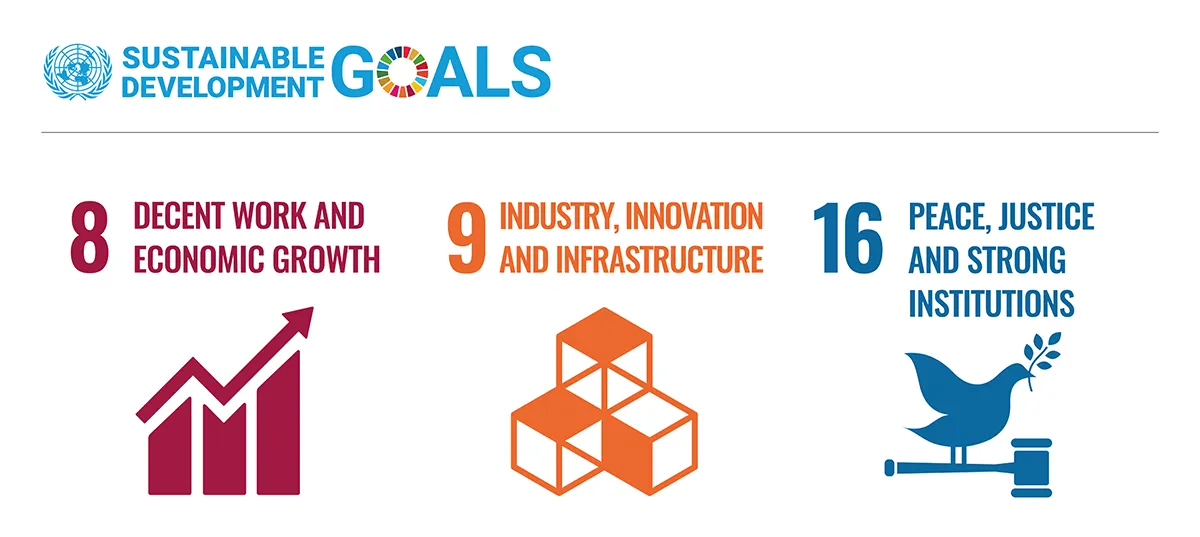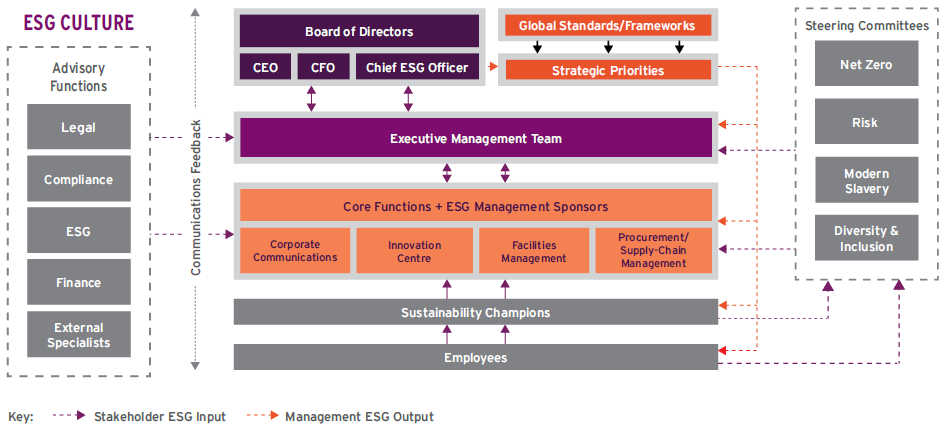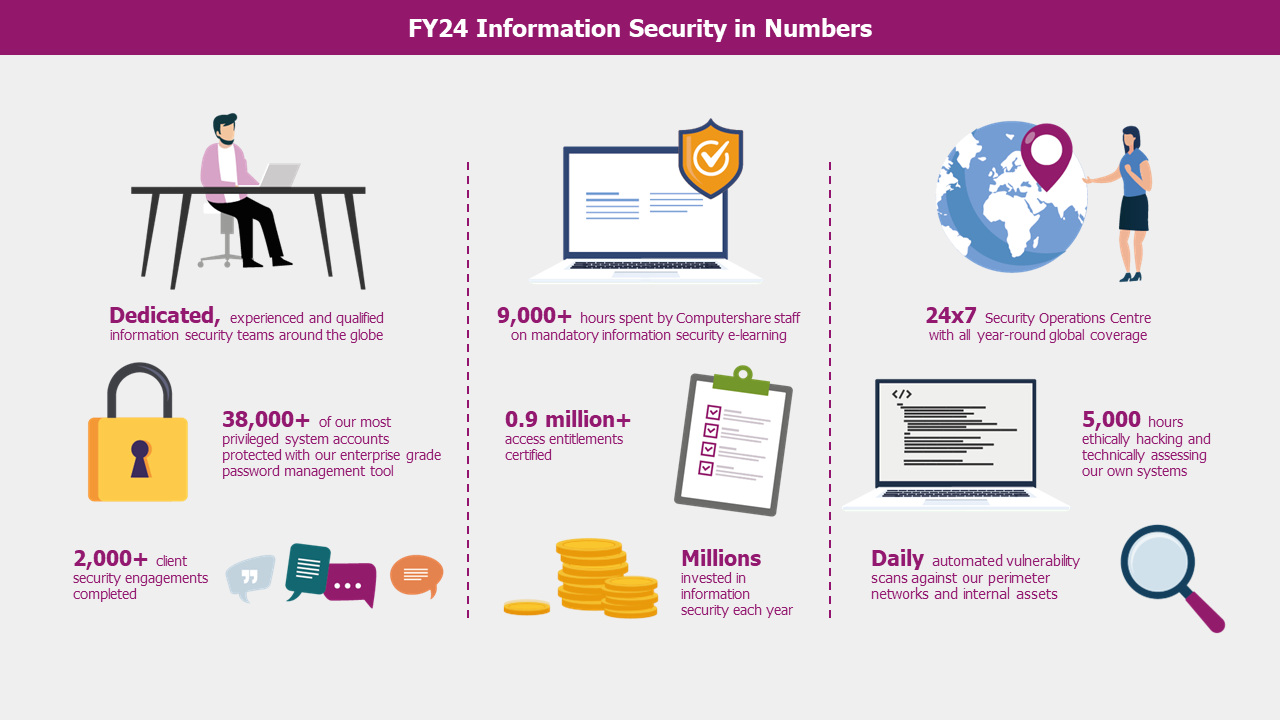Computershare aims to ensure that management of ESG topics is embedded across the organisation so we can develop the right governance and company culture around ESG.

ESG governance structure
Our ESG governance structure ensures the management and control of ESG risks is supported by a strong culture of governance and doing the right thing across Computershare.
We have cross-regional steering committees (Net Zero, modern slavery risk, diversity, equity and inclusion) and several advisory functions to support ESG governance across the organisation.

The Board has ultimate responsibility for ESG matters (including our Net Zero program), providing oversight across our ESG strategy, initiatives and actions specifically addressing climate change, and oversees the development and adoption of sustainability policies and Computershare’s climate strategies. ESG is a standing agenda item for the Board and they receive a quarterly sustainability update, covering progress against our ESG strategy, Net Zero sustainability targets, as well as global and local initiatives.
We also continue to evaluate executive pay remuneration to ensure this is linked to ESG-related objectives. Since FY22, 5% of the CEO and CFO’s objectives (and financial outcomes) have been linked to ESG-related targets. Our short-term incentive schemes for senior management also have ESG related metrics.
Computershare also has a recognition platform in place for recognising employees for positive contributions towards the management of ESG/climate-related issues, and we’re looking to incentivise as many employees as possible through the annual target-setting process.
Information and data security
Protecting our information assets and customer data is vital to the success of our business.
Our Global Information Security team is led by the Global Chief Information Security Officer (GCISO), who provides oversight and guidance on the development and implementation of information security across Computershare. The GCISO has overall responsibility to the Board, via the CEO, for the Information Security function.
Each region is represented by security consultancy teams, and they’re supported by global specialist security teams covering assurance, architecture, governance, and operation disciplines.

The Board receives regular reports providing visibility of information security risks and oversight of how they are being managed.
Additionally, all Computershare employees have their information security responsibilities clearly defined within a comprehensive global information and cyber security framework aligned to ISO/IEC 27002.
ESG-related group policies and codes
As part of Computershare’s overall approach to ESG governance, we’ve developed and implemented a suite of policies and codes. These are communicated to all employees through our mandatory learning platform and reviewed and maintained on an ongoing basis.
- Environment, Social and Governance Policy
- Diversity, Equity and Inclusion Policy
- Global Code of Conduct
- Human Rights Policy
- Anti-Bribery and Corruption Policy
- Whistleblower Policy
- Supplier Code of Conduct
- Modern Slavery Statement
Alignment to climate-related disclosures and frameworks
In addition to our internal governance structure, Computershare also aims to align with recognised global disclosure standards and frameworks, including the United Nations Sustainable Development Goals (UNSDG), CDP (formerly Carbon Disclosure project), Task Force on Climate-Related Financial Disclosures (TCFD), Sustainability Accounting Standards Board (SASB) standards and International Sustainability Standards Board (ISSB) standards.
Computershare is also now actively preparing to undertake mandatory sustainability reporting disclosure as required by the new Australian Sustainability Reporting Standard (ASRS). This is a mandatory requirement for Computershare to disclose sustainability information as part of its financial reporting. Our first year for mandatory reporting will be for the financial year ending 30 June 2026.
Want to know more?
Our annual ESG Report includes further information on our governance controls and practices.